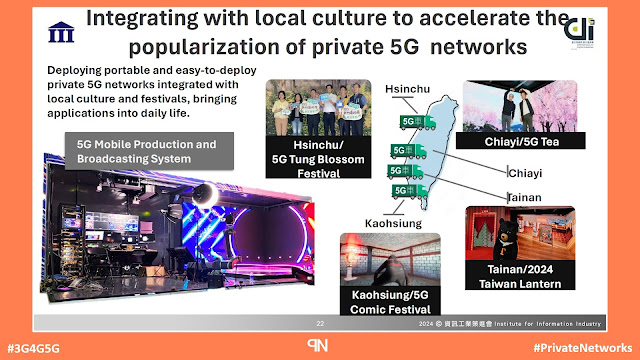Private networks have become a cornerstone of digital transformation across industries, offering secure, tailored connectivity to meet diverse operational needs. Taiwan, with its strong emphasis on technological innovation, has emerged as a key player in the development and deployment of private 5G networks.
At the International Workshop on the Promotion of Millimetre Waves for 5G in Japan, Mr Daniel Liu presented The Development of 5G Vertical Applications in Taiwan. Here is an overview of Taiwan's progress, challenges, and strategic actions in this domain, based on his insights.
Taiwan officially launched its private 5G network commercialisation in June 2023. By the first quarter of 2024, the country had issued six licences, approved 79 deployment admissions, and processed 114 application cases across various industries. Leading verticals include smart factories, exhibitions, and laboratory applications, collectively accounting for 70% of deployments.
The Taiwanese government’s policy framework emphasises simplicity, flexibility, and openness, ensuring seamless equipment integration, streamlined verification processes, and expedited transitions from experimental to commercial applications.
Private 5G networks are revolutionising several sectors in Taiwan, with the top three verticals being:
- Smart Factories (36%): Leveraging 5G for automated production, digital twins, and predictive maintenance.
- Smart Exhibitions (23%): Using high-speed networks to enhance interactive experiences and remote accessibility through AR/VR.
- Research and Development Labs (11%): Enabling improved collaboration and high-bandwidth connectivity.
Other domains, including smart logistics, education, agriculture, and food safety, are also adopting private 5G to tackle specific challenges and seize new opportunities.
Despite its rapid progress, Taiwan faces significant barriers to broader private 5G adoption:
- High Initial Costs: SMEs, comprising 98% of Taiwanese businesses, often struggle with limited budgets.
- Limited Equipment Connectivity: More than half of factory equipment lacks 5G compatibility.
- Underutilisation of Data: Many enterprises have not yet fully assessed the value of big data analytics enabled by 5G.
- Skill Gaps: A shortage of IT expertise and automation capabilities hinders deployment and maintenance.
To address these challenges, the Taiwanese government and industry stakeholders have implemented targeted strategies:
- Ecosystem Development: Collaborations with industry associations to draft use case blueprints and inspire innovative applications.
- Cross-Ministry Support: Offering incentives to accelerate hardware-software integration and the formation of ecosystems.
- One-Stop Services: A dedicated office provides application counselling, spectrum management, and network verification services.
Additionally, the government actively promotes cultural and business applications, such as immersive festival experiences and smart tourism solutions, showcasing the potential of private 5G.
Taiwan’s approach to private 5G exemplifies its role as a catalyst for industrial and societal transformation. By focusing on vertical integration, digital innovation, and localised applications, the country aims to expand its global footprint in the private 5G sector.
As industries worldwide increasingly recognise the value of private networks, Taiwan's experience serves as a model for innovation, collaboration, and overcoming adoption barriers.
The slides from the presentation are available here and the video is embedded below:
This article on the related topic is also definitely worth a read.

Comments
Post a Comment